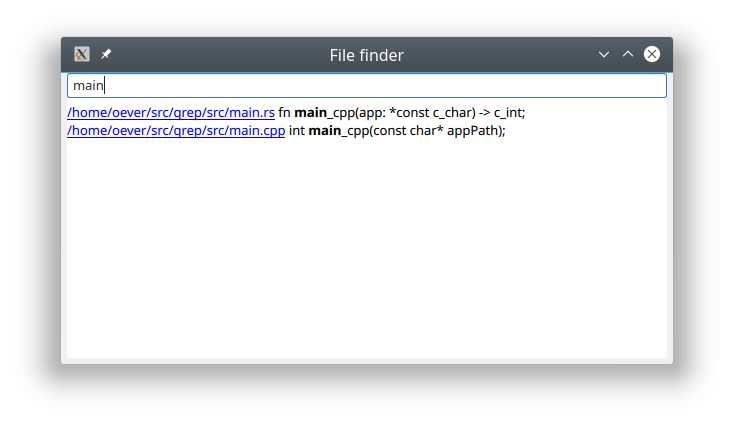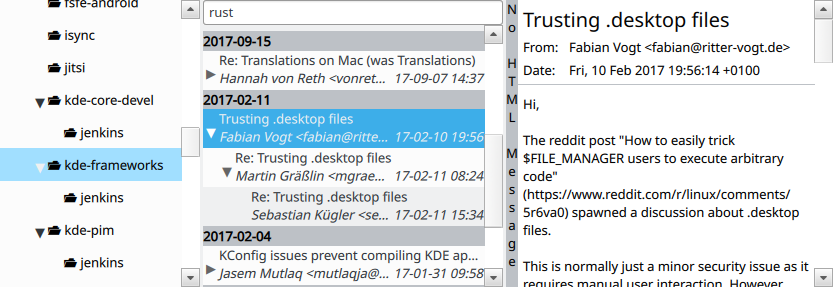This blog shows how Qt applications can be built with Cargo. The goal is to make compiling them as simple as installing Qt and running
qrep and mailmodel are
examples. You can try qrep with
Rust Qt Binding Generator repository.
Why Cargo?
In previous blogs we built applications with CMake. CMake is probably the most widely used tool to compile Qt software. CMake uses Cargo to build the Rust parts.
CMake is a familiar tool for Qt developers, but not for Rust
developers. For them, CMake is an unneeded hurdle. Rust Qt Binding
Generator can be used with only Cargo. To do so you use the Rust way of
building C++ code: build.rs.
build.rs
build.rs contains Rust code that is compiled and run by
Cargo to build an application. Here is a simple build.rs
file:
here.


Comments
Post a comment